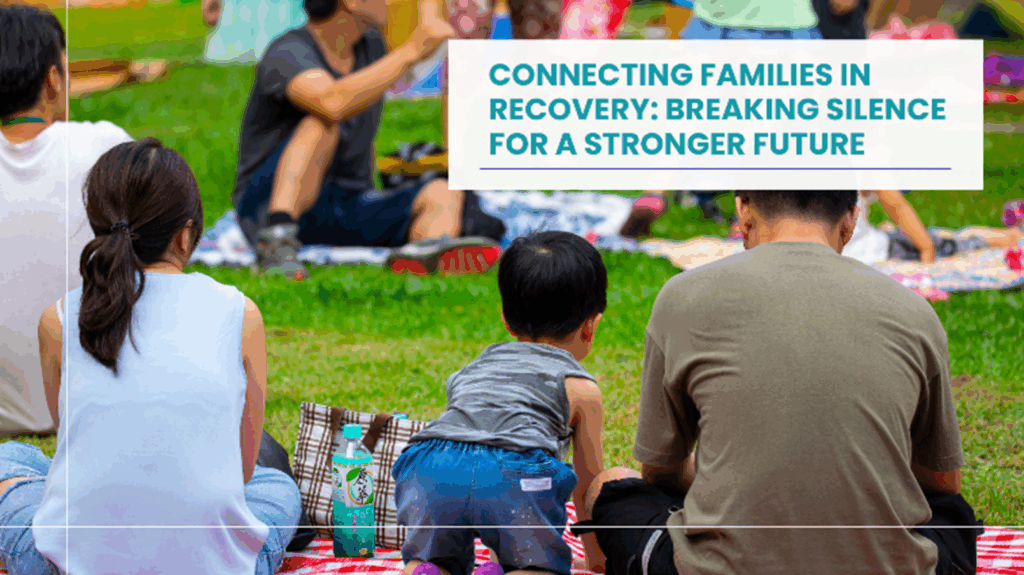National Recovery Month is a powerful reminder that healing from the disease of addiction is not just an individual journey — it’s a collective one. When families come together in recovery communities, profound transformation takes root: hope replaces isolation, understanding replaces shame, and collective voices pave the path for compassion and policy change.
The Power of Family Recovery Communities
Mutual help groups like Al Anon, Alateen, Celebrating Families!, family ministry in faith communities, and others offer safe, judgment free spaces where families can share experiences, educate themselves, and build resilience together.
• Al Anon and Alateen: Al Anon, for adults, and Alateen, for youth, help families and friends of individuals with SUD problems learn to detach with love, set healthy boundaries, and prioritize their well being—focusing on themselves rather than trying to fix the person with the substance use disorder.
• Scale and reach: Al Anon is a global fellowship with meetings in over 133 countries and more than 30,000 groups, alongside 2,300+ Alateen groups worldwide. Adult Children of Alcoholics (ACoA) also offer healing communities, with over 2,745 meetings registered globally as of November 2024.
Why Mutual Support Matters: Evidence & Impact
• A 2024 Al Anon membership survey revealed that 80% of participants reported improvements in mental health and overall wellness
• Another survey found that 80% of respondents saw mental health improvement within their first year of Al Anon participation; that number rose to 91% among those with four or more years of involvement
• A powerful statistic: 88% of members reported seeing improvement in their mental health after starting Al Anon, with 67% noting significant changes; among those with 2–3 years of continuous attendance, 60% experienced significant improvement
• The CRAFT (Community Reinforcement and Family Training) model empowers family members to support loved ones into treatment—with success rates around 64% and even 74% in some studies
Breaking the “Don’t Talk, Don’t Trust, Don’t Feel” Cycle
As NACoA Co-Founder and renowned expert Dr. Claudia Black articulated, families often live under rules like “Don’t Talk; Don’t Trust; and Don’t Feel.” These patterns of secrecy, fear, and emotional numbness pass from one generation to the next—unless they’re actively addressed.
By engaging in recovery communities, families learn to:
• Speak openly about pain and hope
• Build trust through shared healing
• Re-engage feelings safely and compassionately
This collective healing breaks destructive silence and lays the foundation for stronger, healthier futures.
Dr. Black also teaches that trauma is not simply a condition — it’s the body’s response to overwhelming pain. Recognizing this helps families understand behaviors not as moral failures but as responses to trauma, fostering empathy and growth.
Recovery Communities Provide Fun and a Sense of Belonging
Families in recovery deserve a place where they can enjoy a sense of community that provides a foundation of safety and recovery so that families can gather for fun and enjoyment without the worry or pressure of substance use. While support systems are foundational to a strong community, it is through moments of shared laughter and enjoyment that bonds are deepened and belonging is fostered. Fun activities break down barriers, create lasting memories, and encourage individuals to feel safe and secure with one another as they raise their children in a healthy environment with people who hold similar values.
A Community Solution: Celebrating Families! Curriculum for All
Programs like Celebrating Families! embrace the whole family — teaching coping skills, fostering healthy communication, and nurturing connections. These programs often partner with:
• Local therapists
• Faith-based organizations
• Behavioral health clinics
• Social service agencies
Working together, these collaborations offer educational workshops, grief support, and evidence-based practices—helping reduce stigma and strengthen communal healing.
When all family members—not just the person with the disease of addiction—are included, healing becomes more legitimate, more sustainable, and more generative. Children affected by parental substance use need tailored support, nurturing adults to understand addiction and support their inner resilience.
The Healing Power of Sharing Stories
Stories are bridges. When families share their recovery journeys, they:
• Foster healing through expression
• Validate others in silence
• Build advocacy grounded in compassion—not shame
• Influence policy with authentic, stigma-reducing narratives
When shared with care and respect, stories become seeds of change.
As we honor National Recovery Month, let’s remember: recovery thrives in community. When families connect, learn, speak, and heal together—when children’s stories are heard with compassion, when collaborations span therapy, faith, and policy—we ignite true transformation. Together, we’re not just recovering—we’re redefining recovery.
